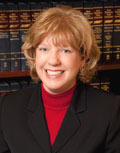Submitted by the Bond & Botes Law Offices - Monday, February 1, 2016
 It is rare for a discharge to be taken away or revoked by a Bankruptcy Judge after it has been granted, but it does occur.
It is rare for a discharge to be taken away or revoked by a Bankruptcy Judge after it has been granted, but it does occur.
Reasons for Revocation of Discharge
11 U.S.C. § 727(d) is the statute that provides that:
On request of the trustee, a creditor, or the United States trustee, and after notice and a hearing, the court may revoke a discharge … if
- such discharge was obtained through the fraud of the debtor, and the requesting party did not know if such fraud until after the granting of the discharge;
- the debtor acquired property that is property of the estate, or became entitled to acquire property that would be property of the estate, and knowingly and fraudulently failed to report the acquisition of or entitlement to such property, or to deliver or surrender such property to the trustee;
- the debtor committed an act specified in subsection (a)(6) of this section [which is refusing to obey an order of the court other than the refusal to testify because the testimony may cause the debtor to self- incriminate himself criminally]; or
- the debtor has failed to explain satisfactorily-
- a material misstatement in an audit…[ of the means test]; or
- a failure to make available for inspection all necessary accounts, papers, documents, financial records, files and all other papers, things, or property belonging to the debtor that are requested for an audit …[ of the means test].
Further, the request to revoke the discharge must be made within 1 year after granting of the discharge if the reason is for fraud as stated in subsection 1 above or the later of 1 year after granting the discharge and the date the case is closed, which can be longer than the one year.
Most of the cases dealing with revocation of a discharge acknowledge that revocation is “an extraordinary measure” [1] and that revocation of a discharge is “a harsh measure that runs contrary to the general policy of the Bankruptcy Code of giving Chapter 7 debtors a ‘fresh start’.[2]
Bankruptcy Revocation Statute
Some interesting observations to point out about the revocation statute that Judges seem to focus on are:
- The person asking for the revocation of the discharge because the debtor committed fraud must not have known about the fraud before the discharge was granted under subsection 1[3];
- The person asking for revocation of the discharge must be able to show that the debtor not only failed to provide the trustee with information about an asset acquired, the asset itself or information leading to the financial documents of the debtor, but they must go one step further and show the debtor did it knowingly and willfully under subsection 2[4]; and
- Whether the property acquired by the debtor and not disclosed is really “property of the bankruptcy estate.[5]” as defined by the Bankruptcy Code.
It is very important to disclose to your attorney at Bond and Botes, P.C. all assets and potential assets and let your attorney advise you on whether the asset should be disclosed to the Trustee and Bankruptcy Court as “property of the bankruptcy estate”, do not assume you know what that definition encompasses . It is also important to know when you file for bankruptcy you are asking for a benefit, which is to be forgiven of debt and to stop creditors from taking action to collect that debt; but in exchange for that benefit, you must comply with the Bankruptcy Laws and the Bankruptcy Court. The Bankruptcy Laws are weighted to benefit the person filing the bankruptcy, but only if the person filing the bankruptcy is an honest person who has suffered a misfortune and is willing to give transparency to his financial situation because he has nothing to hide.
More Helpful Information
How Do You Disclose Assets When Filing for Bankruptcy?
Inheriting Money or Property After Filing Bankruptcy
Ten Important Things You Should Tell Your Bankruptcy Attorney
Can I Be Denied a Bankruptcy Discharge of my Debts?
Sources
[1] In re Yates, Bankruptcy No. 04-05619-JH7 (Bankr.S.D.Cal. 11/17/2009) (Bankr.S.D.Cal., 2009) at 27.
[2] 10 W. Chase, LLC v. Shepard (In re Shepard) Bankr. Md. 2011) at page 9.
[3] See, In re Russo, Bankr. 07-17525bf (E.D. Pa. 2008) The Court found the creditor knew the debtor had been granted alimony and support by an Italian Court prior to the discharge of the debtor, even though the debtor did not disclose the award in her petition.
[4] A trustee seeking a revocation of discharge must establish that the debtor willfully and intentionally refused to obey the court's order. Thus, the trustee must show more than a mere failure to obey the court's order that results from inadvertence, mistake, or inability to comply; he must demonstrate some degree of volition or willfulness on the part of the debtor. In re Jordon, 521 F.3d 430, 434 (4th Cir. 2008)
[5] See, Seaver v. Klien-Swanson (In re Klein-Swanson), (8th Cir. 2013). The District Court affirmed the Bankruptcy Court’s holding that bonuses received by the debtor after filing the petition were not property of the bankruptcy estate as the debtor did not have an right to the bonus on the day she filed her bankruptcy because the employer maintained discretion after the filing whether to give the bonus or not. Because the bonus was not property of the bankruptcy estate, the failure of the debtor to disclose the bonus was irrelevant.

 1-877-581-3396
1-877-581-3396

